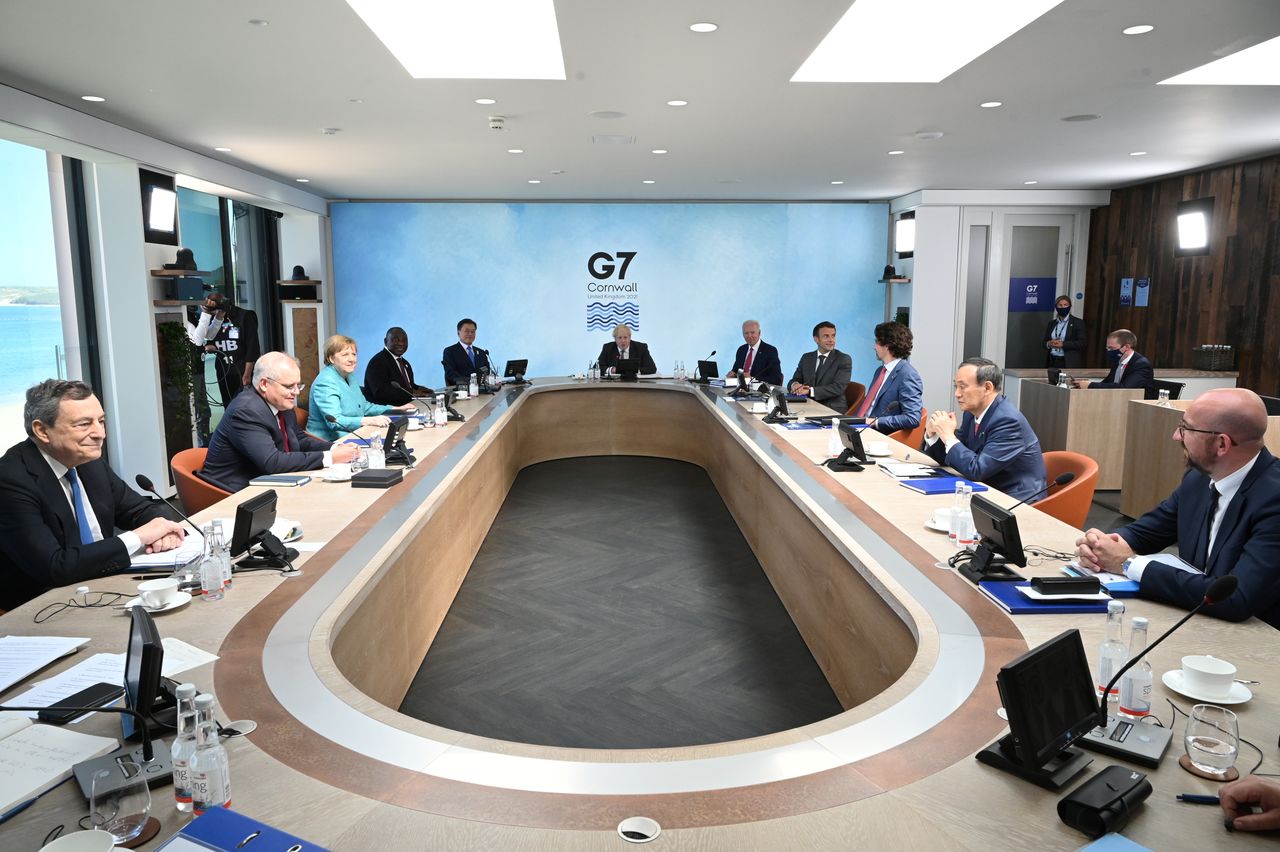G7 split on reallocating $100 billion IMF funds to COVID-hit nations
Newsfrom Japan
- English
- 日本語
- 简体字
- 繁體字
- Français
- Español
- العربية
- Русский

FILE PHOTO: British Prime Minister Boris Johnson, U.S. President Joe Biden, France's President Emmanuel Macron, Canadian Prime Minister Justin Trudeau, Japanese Prime Minister Yoshihide Suga, President of the European Council Charles Michel, Italian Prime Minister Mario Draghi, Australia's Prime Minister Scott Morrison, German Chancellor Angela Merkel, South Africa's President Cyril Ramaphosa and South Korea's President Moon Jae-in attend a working session during G7 summit in Carbis Bay, Cornwall, Britain, June 12, 2021. Leon Neal/Pool via REUTERS
CARBIS BAY, England (Reuters) - Group of Seven leaders were trying to resolve differences over a proposal to reallocate $100 billion from the International Monetary Fund's warchest to help countries struggling to cope with the COVID-19 crisis.
An almost final version of the G7 communique seen by Reuters showed Germany and Italy had yet to back the inclusion of the $100 billion figure in the final statement by leaders.
The IMF's members agreed in April to a $650 billion increase in IMF's Special Drawing Rights and the G7 countries are considering whether to reallocate $100 billion of their rights to help poor countries fight the COVID pandemic.
SDRs are the IMF's reserve asset, and are exchangeable for dollars, euros, sterling, yen and Chinese yuan or renminbi. Member states can loan or donate their SDR reserves to other countries for their use.
The head of the IMF, Kristalina Georgieva, told reporters on the sidelines of the summit that she had been heartened by the G7's support for the plan and that she expected a clear indication later on how best to proceed, adding that the $100 billion target had been in discussion.
(Reporting by William Schomberg and Guy Faulconbridge; Editing by Kate Holton and Frances Kerry)
(c) Copyright Thomson Reuters 2021. Click For Restrictions -
https://agency.reuters.com/en/copyright.html
Reuters Japan Health United States France United Nations Asia Europe Germany International Monetary Fund Italy Canada US United Kingdom G7 UK